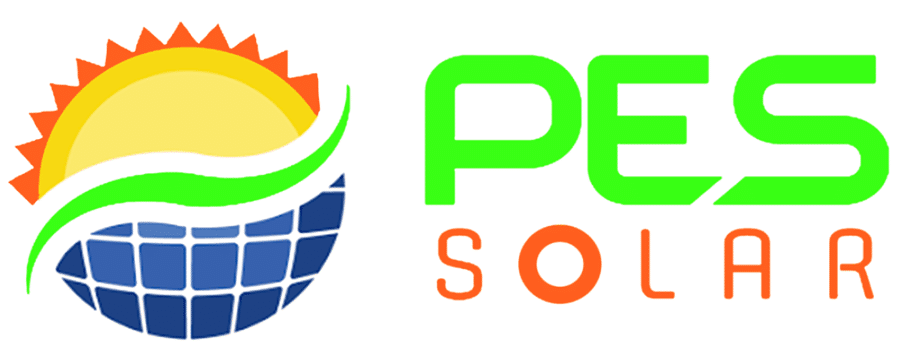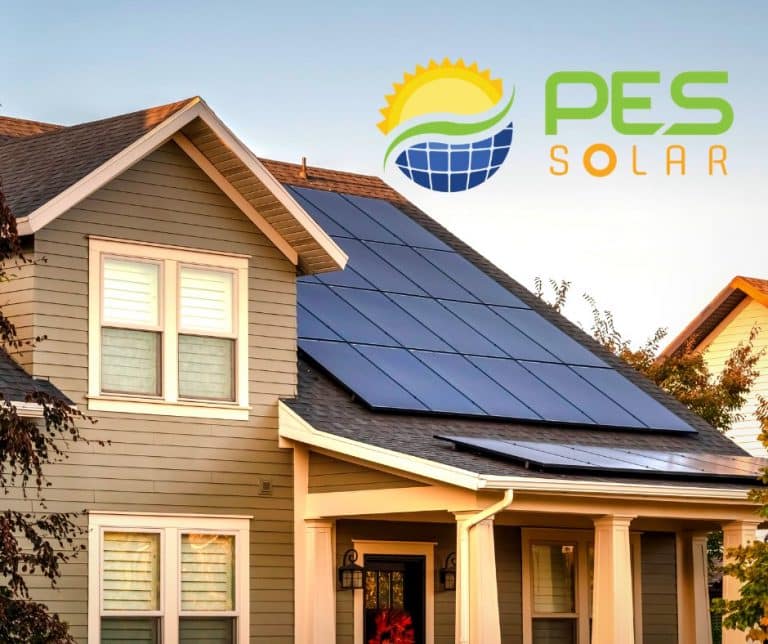Discover the benefits of solar power at your Florida home. Call PES Solar at 800-650-6519 to schedule a consultation.
If you’ve considered bringing solar power to your home, you’ve likely wondered, “how do solar panels transport energy into the house?”. Solar panels use the sun to create electricity, but how does it all work? In this article, we explain how a solar panel array transports the sun’s power into the electrical system that powers your home.
PES Solar has two decades of experience designing solar systems for homeowners throughout Florida. Our knowledgeable crew members can handle your solar panel installation in Orlando or the surrounding area, and we can even help you with simple, zero-down-payment financing.
How Solar Panels Transport Energy in Four Steps
Below, we break down how solar panels produce and transport electricity to the home in four steps.
- Sunlight Produces an Electric Current
Solar is one of the most popular renewable energy sources in Florida, and with an average of 230 sunny days a year, it’s not difficult to see why. The sun produces massive amounts of electromagnetic radiation through constant nuclear fusion reactions every second. This radiation reaches the earth as protons, positively charged subatomic particles.
Solar panels consist of dozens of photovoltaic cells that act as semiconductors to generate an electric current. Each cell contains a silicon semiconductor wafer with two layers, one negatively charged, and one positively charged. When protons from the sun strike the wafer, they knock loose electrons, which flow away from the electric field generated where the positively and negatively charged wafer layers meet.
- The Inverter Converts DC to AC
The electrical charge generated when protons strike the photovoltaic cells flows into conductive plates that direct the current through wiring to an inverter. Because solar panels produce direct current (DC) electricity, the energy must be converted to alternating current (AC) electricity, which most homeowners use to power their homes.
A solar system may use one inverter or many microinverters, depending on the setup. In addition to converting DC to AC, inverters regulate the voltage to control the flow of electricity.
- The Energy Enters the Electrical Panel
Once converted from DC to AC, the electricity flows through connective wiring to the home’s electrical panel (breaker box), where it gets dispersed throughout the structure to power appliances, lights, and other electrical devices. Off-the-grid solar systems may direct the electricity to a battery bank, which can store unused energy for later use when the solar panels aren’t generating electricity.
- Unused Energy Enters the Grid
For most homeowners, unused energy flows through their utility meter to their local power grids. Many power companies pay homeowners for energy flowing into the grid through “net metering” policies that offset electricity costs using bill credits. You may lower your power bill with solar energy or even earn money from your utility company.
Frequently Asked Questions About Solar Panels
“So how do solar panels transport energy?” and other frequently asked questions.
Do PV Solar panels absorb thermal energy?
No. Photovoltaic solar panels generate electricity using light energy, not thermal energy. However, large-scale solar systems do exist that use the sun’s heat energy to produce electricity. These concentrated solar power (CSP) systems use mirrors to reflect the sun’s rays onto a single point, which absorbs the concentrated thermal energy to generate an electric current.
CSP systems typically produce large quantities of electricity for a power grid, not a separate home or building. In contrast, many individual homes across the United States generate power using photovoltaic solar panels.
What about a solar powered hot water heater?
Solar water heater systems function similarly to large CSP systems, except the power is used to heat water instead of generate electricity. Solar water heaters use panels that convert solar energy into heat and transport it to the water using a heat exchanger. Rather than traditional PV solar panels, these systems use collector panels that contain absorber plates and glass covers.
Do you still have a power bill with solar panels?
Many homeowners wonder if they will still have an electricity bill after installing solar panels on their homes. The answer is yes, but you may not owe any money depending on how much energy you pulled from and gave to the grid that month.
With a solar system, your utility meter flows both ways. If your solar panels generate more electricity than you consume, the power company may provide a credit. On the other hand, using more energy than the panels generate will result in an owed payment.
Most homeowners can expect to pull energy from the grid periodically, especially at night when protons from the sun cannot reach the panels.
How do you know if solar panels are facing the right way?
Panel placement plays a critical role in a solar system’s ability to generate ample electricity consistently. An experienced solar company like PES Solar will assess your home before installing the system. Solar professionals will position your solar panels at the ideal location and angle to maximize solar energy generation.
At PES Solar, we begin every installation with an assessment of the home to determine the best placement and positioning of the client’s solar panels. We want all our customers to enjoy maximum benefits from their solar systems and keep as much money as possible in their pockets.
Invest in Solar Panel Installation by PES Solar
Now that you know the answer to the question, “how do solar panels transport energy?”, visit our blog to learn more about how solar panels work.
PES Solar provides homeowners throughout Florida with customized solar systems designed to suit their energy needs. You won’t regret working with our experienced and friendly staff for your solar system installation. Our past customers love working with us because we provide exceptional service every step of the way.
We install solar panels in Dr. Phillips, Deltona, Orlando, Clearwater, West Palm Beach, and Tampa, FL, and nearby areas throughout Florida. Schedule a consultation with PES Solar today by calling 800-650-6519.

